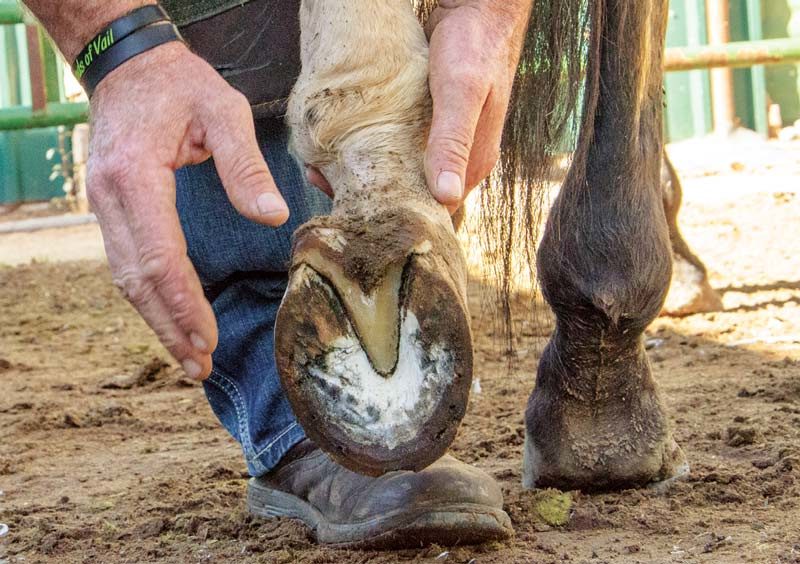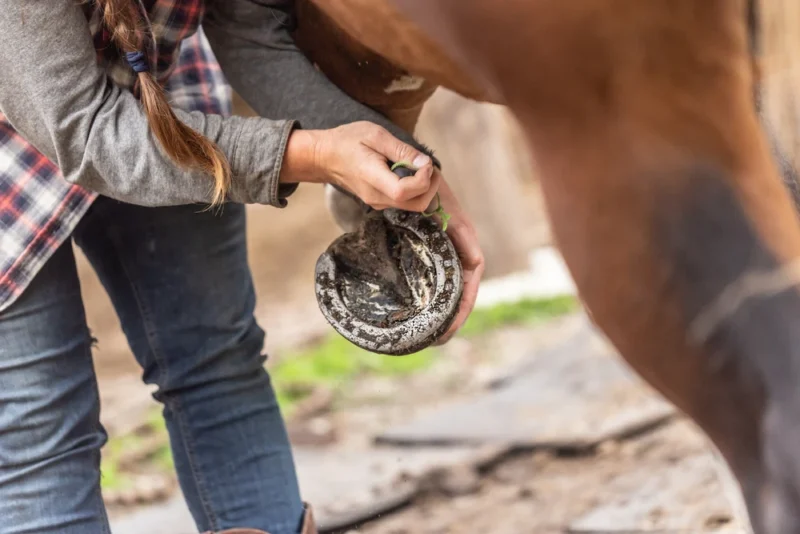As a horse owner, it is essential to know when to call the vet for thrush treatment. Thrush is a common ailment that affects the hooves of horses and can lead to discomfort and lameness if left untreated. While mild cases of thrush can often be easily managed at home with proper hoof care, more severe cases may require the expertise of a veterinarian.
In this article, we will discuss the signs and symptoms of thrush, what causes it, and when it is necessary to seek professional help for treatment. By being informed and proactive, you can ensure your horses hooves stay healthy and strong.
Recognizing the Signs of Thrush in Horses

Recognizing the signs of thrush in horses is essential for proactive treatment and prevention of this common hoof ailment. One major sign to watch out for is a foul odor coming from the hoof, which is often accompanied by a black, sticky discharge. Additionally, you may notice your horse becoming tender-footed or showing signs of lameness, especially when walking on hard surfaces.
Inspecting the hoof regularly for any abnormal appearance or sensitivity can help catch thrush early on before it progresses. Keep an eye out for any moist or discolored areas on the sole or around the frog, as these may also be indicators of thrush. By being vigilant and knowing what to look for, you can promptly address thrush and ensure your horses hooves stay healthy.
Importance of Prompt Veterinary Care for Thrush

Prompt veterinary care for thrush is essential for ensuring the health and well-being of your horse. Thrush is a common bacterial infection that affects the hoof, causing foul-smelling discharge and potential lameness if left untreated. By seeking prompt veterinary care, you can receive a proper diagnosis and treatment plan tailored to your horses specific needs.
Early intervention can help prevent the infection from worsening and spreading, ultimately leading to a quicker and more successful recovery. Additionally, a veterinarian can provide valuable advice on preventative measures to reduce the risk of future thrush infections. Therefore, seeking prompt veterinary care for thrush is crucial for maintaining your horses hoof health and overall quality of life.
When to Consult a Veterinarian for Thrush Treatment

Knowing when to consult a veterinarian for thrush treatment is important for the health and well-being of your horse. If you notice persistent or severe cases of thrush that do not improve with at-home treatments such as cleaning the hooves and using over-the-counter products, it may be time to seek professional help. Additionally, if your horse is showing signs of lameness, discomfort, or an unwillingness to bear weight on the affected hoof, it is crucial to consult a veterinarian promptly.
Early intervention can prevent the spread of infection and promote faster healing. Your vet can provide a thorough examination, diagnose any underlying issues, and recommend an appropriate treatment plan tailored to your horses specific needs. It is always better to err on the side of caution and seek veterinary advice if you are unsure about how to address thrush effectively.
Conclusion
In conclusion, it is important for horse owners to be vigilant in monitoring their horses hooves for signs of thrush. While mild cases can often be remedied with proper hoof care and maintenance, severe or recurring cases may require the intervention of a veterinarian. It is important to seek professional help if the thrush does not improve with regular treatment, as untreated thrush can lead to more serious complications.
Additionally, using products such as Best Hoof Conditioner can help prevent the recurrence of thrush and maintain healthy hooves in the long term. By being proactive and seeking help when needed, horse owners can ensure their horses hooves remain healthy and sound.


